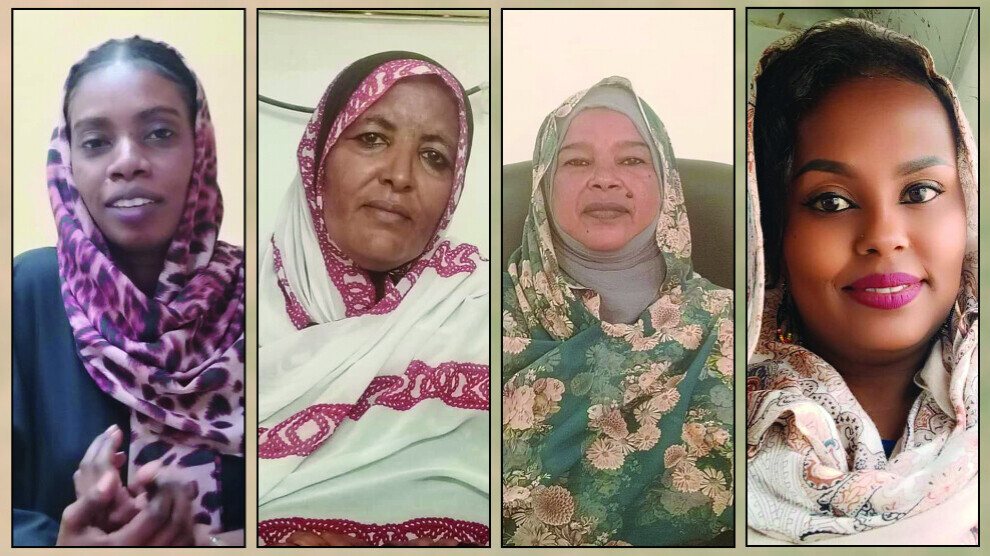What Are the Reasons and Motives Behind the Rise of Femicide in Sudan?
Sudan faces a surge in femicides after two women doctors were killed by their ex-husbands. Social pressures, economic crisis, and ongoing conflict fuel gender-based violence, prompting urgent calls for stronger laws to protect women from such crimes.

Aya Ibrahim
Sudan — Amid growing calls for stricter legislation and effective justice against gender-based violence, Sudan is witnessing an alarming surge in crimes targeting women—ranging from physical assaults to outright killings—threatening their safety and hindering their progress in society.
On August 18, the brutal killing of Dr. Rawaa Alaa Al-Din by her ex-husband in Merowe’s medical city sparked widespread outrage after he stabbed her 16 times with a sharp weapon.
Just weeks earlier, social media had erupted over another shocking case: a doctor and her sister were murdered in Saudi Arabia by the doctor’s ex-husband, who attacked them with a sharp weapon, killing them instantly. Their mother and two other sisters were also assaulted and rushed to the hospital.
---
Repeated Attacks on Women
Azhar Ibrahim, a psychologist at the Ministry of Health in Northern State and a member of the Family Planning Association, expressed deep sorrow over the rising femicide cases in Sudan. She stressed that such tragedies demand urgent action:
“We aspire to a new Sudan that genuinely empowers women and safeguards their rights in a sustainable way.”
She pointed out that psychological stress caused by ongoing conflicts is a major driver of such crimes, along with economic and social pressures. Displacement and lack of cultural harmony, she added, have contributed to behavioral shifts and new patterns of violence in society.
Ibrahim emphasized the importance of building marriages on respect and mutual understanding, calling for greater social awareness and urging men to give women the care and recognition they deserve.
Sudanese women have repeatedly demanded stronger laws to combat violence against women, particularly since such violations—often escalating into femicide—continue to occur. Several high-profile cases have shocked the nation, underscoring the urgent need for decisive legal measures to protect women and put an end to these practices.
Many women argue that premeditated killings are alien to Sudanese culture—especially those carried out with extreme brutality. While violence existed in the past, the disturbing trend today is the use of increasingly savage methods, such as sharp weapons, reflecting a troubling shift in the pattern of violence.
Imbalance in Marital Relationships
According to Bismat Sharif, head of the General Union of Sudanese Women in Northern State, much of the recent violence stems from women’s growing success in professional life and their financial independence. This, she explained, creates an imbalance in marital relationships.
She noted that the lack of mutual respect and equality often leaves some men feeling depressed and resentful—emotions that, in certain cases, erupt into violence against women.
Sharif expressed hope that specialized studies will be conducted on femicide to better understand its causes and curb its recurrence. She stressed the importance of men learning to accept women’s success and independence, pointing out that history has seen many cases where this very success was met with rejection.
Lack of Awareness
Malath Salah Al-Din, who works at the hospital where one of the murders occurred, warned that the repeated killing of women carries profound social, psychological, and cultural consequences. She argued that the lack of awareness surrounding these issues only worsens the problem.
She emphasized the need for early interventions and preventive measures, which could stop crimes before they happen—if warning signs are taken seriously by families and communities.
Salah Al-Din called for awareness campaigns beginning at the household level, noting that Sudanese society largely grants men unchecked authority, unlike women. She also linked the recurrence of these crimes to the pressures caused by ongoing conflict and displacement.
Calls for Stronger Legislation
Journalist Ayat Fadl, who specializes in homicide reporting, stated that femicide by ex-husbands has become a disturbingly frequent trend in Sudan, especially in recent years.
She explained that such crimes are not random but driven by multiple factors, including weak legal protections for women, jealousy, and revenge. Disputes over children’s rights—such as custody, alimony, and inheritance—also fuel such violence.
According to Fadl, many men perceive divorce—particularly in cases involving infidelity or rejection—as a personal humiliation, which sometimes pushes them toward violent retaliation, escalating in some cases to murder.
To combat this phenomenon, she stressed the need for immediate protection for potential victims, strict enforcement of the law, and broader societal efforts to challenge harmful cultural norms. Most importantly, she called for firm legislation that ensures accountability and prevents the recurrence of such crimes.
